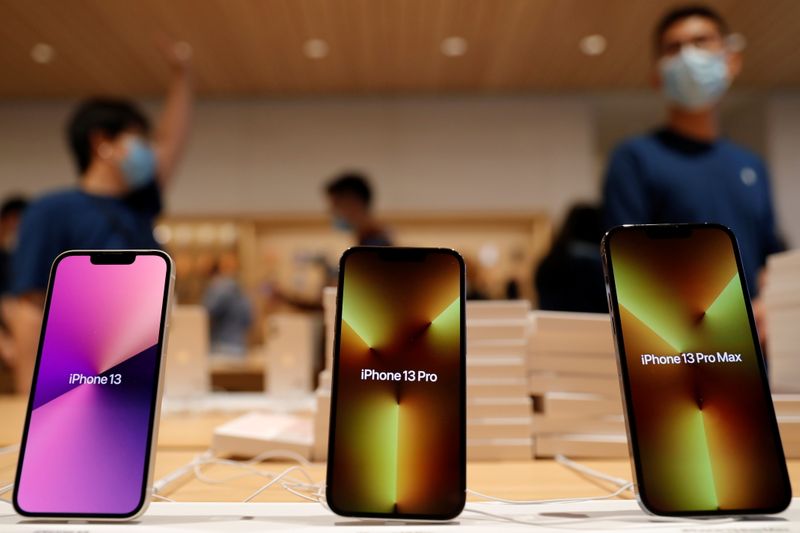By Senad Karaahmetovic
Apple (NASDAQ:AAPL) warned on Sunday that it expects lower iPhone 14 Pro and iPhone 14 Pro Max shipments than previously anticipated due to the ongoing Covid-19 restrictions in China.
Customers “will experience longer wait times to receive their new products” as the primary iPhone 14 Pro and iPhone 14 Pro Max assembly facility located in Zhengzhou, China has been “temporarily impacted.”
“We are working closely with our supplier to return to normal production levels while ensuring the health and safety of every worker,” the company stated in the press release.
Bloomberg News additionally reported that Apple is expecting to ship 3m iPhone units less than previously expected due to a “softer demand for the iPhone 14 and 14 Plus models.”
Bernstein analysts, who rate AAPL as Market Perform, said the update from Apple is “likely to reinforce investor concerns about the company's China risk and the strength of the iPhone 14 cycle.”
“We continue to worry that iPhone 14 estimates and overall estimates for FY 23 are too high, as Apple may have been a Covid beneficiary and the company enjoyed strong iPhone cycles in each of the last two years. We forecast FY 23 revenues and EPS of $386B and $5.84, notably below consensus of $409B and $6.33,” they said in a client note.
Deutsche Bank analysts cut the estimates on Apple to reflect the supply disruption. The firm’s checks showed that lead times for iPhone 14 Pro and Pro max have stretched to 24-31 days, up from 14-21 days just 2 weeks ago.
“We are lowering our iPhone unit assumption for F1Q from 77m to 72m, leading to our F1Q revenue/EPS estimates going from $122b (down -1% y/y)/ $1.95 to $118b (down -5% y/y)/$1.89, below Street estimates at $127b/$2.08. Recall that AAPL guided revenue growth in F1Q to decelerate from the F4Q level of up +8% y/y, and that F1Q this year has 14 weeks,” they told clients in a note.
Despite lowered iPhone unit forecasts for FQ1 by 5 million, the analysts reaffirmed the EPS estimates for F2Q and CY23. They rate AAPL at Buy with a $170 per share price target.
